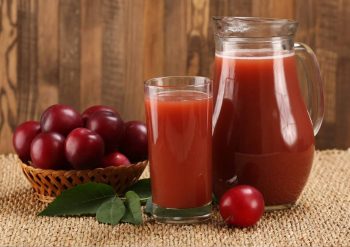Many parents wonder when it is appropriate to give their baby juice, and the answer largely depends on the age and nutritional needs of your child.
Examine why juice should be consumed in moderation and what alternatives can be given to young children instead, as juice is not recommended for babies before their first birthday.
Juice has several benefits, provided that it is given in moderation. For starters, it is rich in vitamins and minerals that can help support babies’ growth and development.
It also provides natural sweetness which can help satisfy little ones who are transitioning from milk to solid food. That said, there are some potential risks associated with consuming too much juice as well.
Risks of too much juice
Juice may contain added sugars or preservatives that could potentially lead to health problems such as tooth decay or obesity. Especially if consumed regularly or excessively by young children.
Additionally, drinking too much juice can fill little bellies quickly, leaving them less hungry for other nutrient dense foods like vegetables and fruits that they need for proper growth.
Dilute the juice with water or breastmilk and only give it to babies in small amounts to ensure they receive other important nutrients.
Alternative beverages
Water is the primary drink for babies 6 months or older as it hydrates without sugar risks. Unsweetened fortified milk drinks, like almond or coconut milk, can be offered after 12 months, as they provide calcium and other vitamins like A, D, and B12. They are a better alternative to cow’s milk as they don’t have lactose.

Conclusion
Offer fruit juices with caution after age 1 to prevent tooth decay and obesity. Water should be the main source of hydration for infants and alternative milks for calcium after age 1. Consult your pediatrician before introducing new foods.


